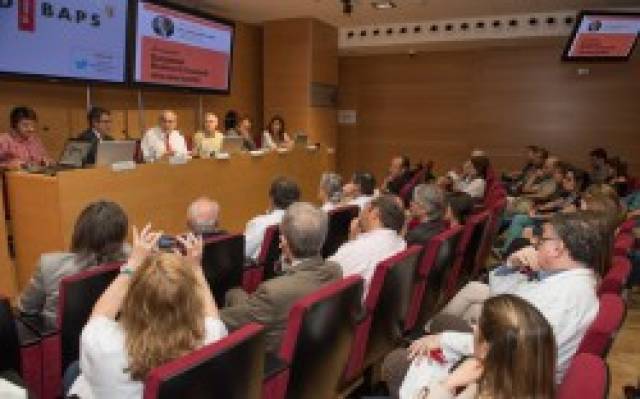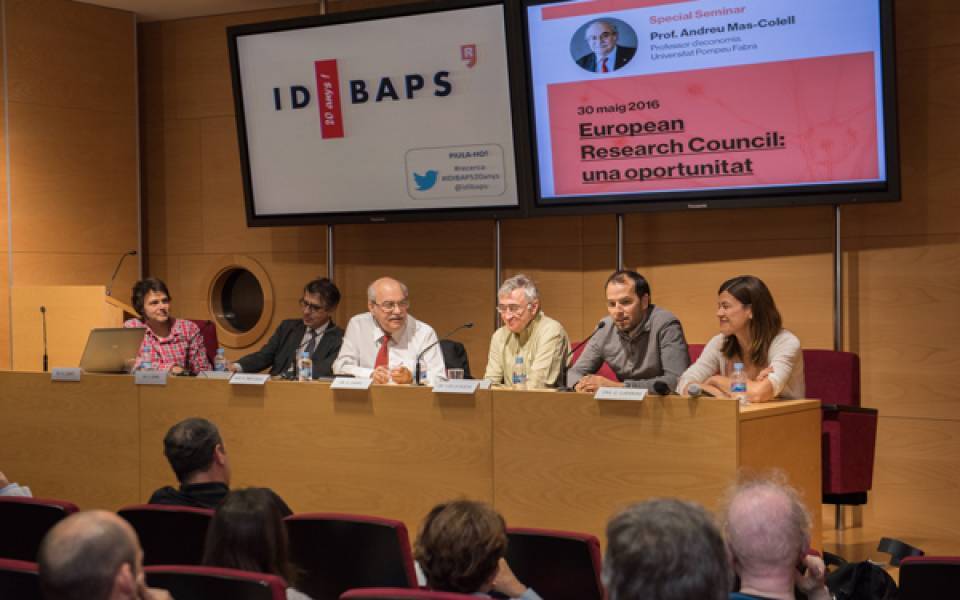He was joined by Ramon Gomis, director of IDIBAPS; Elías Campo, research director at Hospital Clinic and the Clinic Foundation for Biomedical Research; Gemma Llaverías in charge of Career Research at IDIBAPS; Jaime de la Rocha, head of the Cortical Circuit Dynamics IDIBAPS groups; and Marc Claret, head of the Neuronal Control of Metabolism IDIBAPS team. In the conference context, the discussion about the desirability and importance of applying for these grants was promoted among attendees and companions at the table.
Following the presentation of data from Catalonia in the ERC between 2007 and 2016 by Dr. Llaverías; Prof. Mas-Colell explained the creation and evolution of the Council, which focuses on promoting excellence research in Europe. The ERC offers three types of grants, depending on the point of the career in which the investigator is at the time of applying. The requirement is that the candidate must have an excellent track record and a groundbreaking proposal that marks a milestones in the knowledge in their research field..

Marc Claret and Jaime de la Rocha explained their experience in applying to the ERC. Dr. Claret explained that preparing a proposal "a very useful exercise is to put ideas in order and be aware about the potential of the project. I have applied several times. It is a challenge but very satisfying". Dr. de la Rocha, who received an ERC Consolidator Grant in the 2015 call, explained that "my CV is not exceptional, but I thought the proposal a lot, I thought it through and I gave everything. In addition, I have received a lot of support from the institution to prepare the final interview in Brussels". "These grants are a great opportunity for young researchers and I think that our institution should support them so they can apply to and maximize their potential", he said.
You can watch again the conference at the IDIBAPS channel in YouTube.

